Home > Tennessee > Tennessee Crops & Livestock > The Daily Grind Continues at Readyville Mill in Tennessee
The Daily Grind Continues at Readyville Mill in Tennessee
In partnership with: Tennessee Department of Agriculture
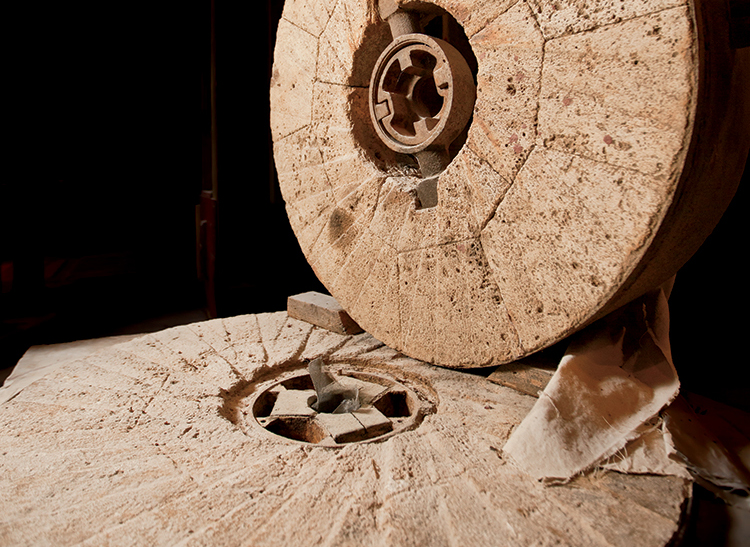
Readyville Mill in Middle Tennessee is a successful example of agriculture meeting historic preservation to make an economic impact on the state’s rural areas.
One of a handful of authentically restored Tennessee mills still grinding corn and wheat the old-fashioned way, Readyville Mill, situated on the border of Rutherford and Cannon counties, is also a venue that is building on its history with expanded services.
Built in 1812, the Readyville Mill was closed in 1978, its water wheel and grinding stones silenced and still until Tomm and Martha Brady purchased it in 2006. Retiring at the age of 42 after a successful run in the candle business, Tomm was looking for something to do when he came across the mill.
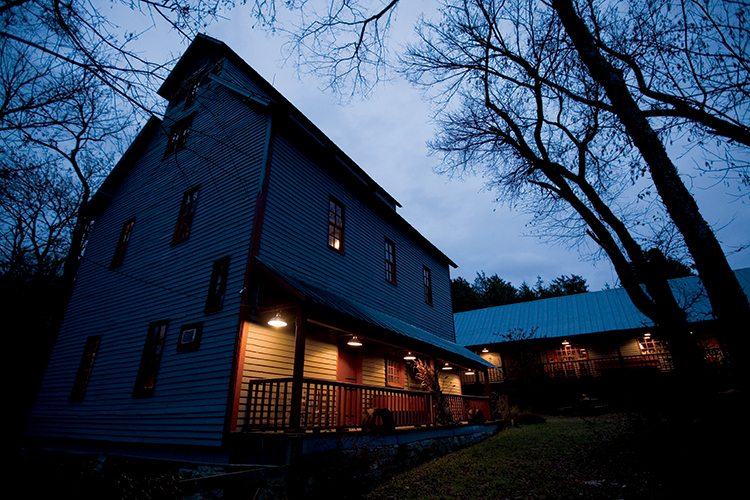
“I felt like this was a worthwhile project, and I loved the restoration end of rebuilding this mill,” Tomm says. “I restored the mill five years before I opened it to the public in 2011, so it has a lot of sweat equity in it.”
The four-story grist mill serves as the centerpiece of the complex, while the granary accommodates 75 for weekend family-style dining, where the cornbread, grits and breads are made with meal and flour ground in the mill. The open space of the adjoining icehouse is ideal for weddings, receptions and reunions.
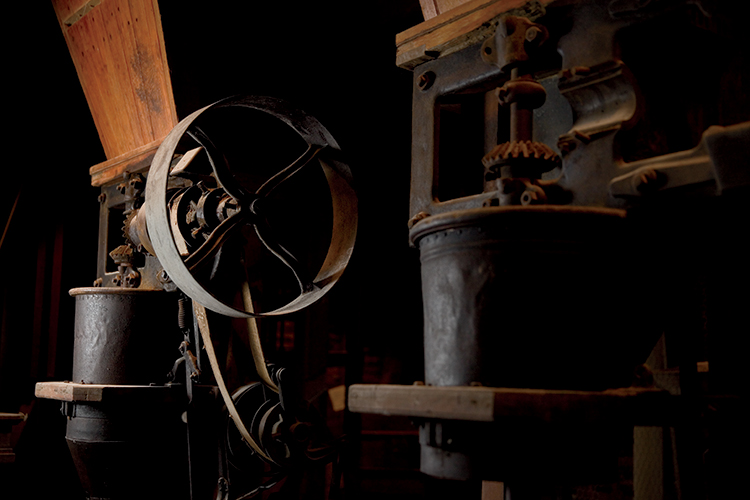
“We’ve hosted more than 80 weddings and several parties and reunions,” Tomm notes. “It’s a feel-good place.”
In February 2014, Brady sold the mill to Karen and Bob Ford, owners of Goodness Gracious Cafe and Catering in Murfreesboro, and The Corners, the house that Charles Ready built in Readyville in the 1820s. This is the first time in more than 100 years that both properties (The Corners house and the mill) are under the same ownership.
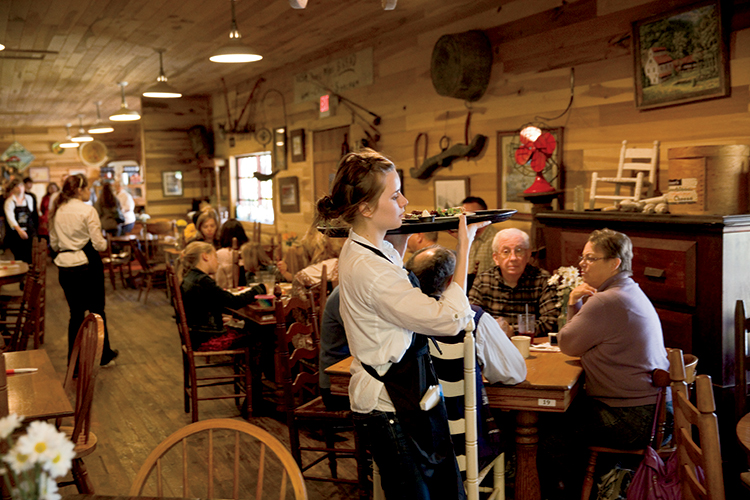
“We are very excited to carry on this tradition,” Karen Ford says. “We are going to do the exact same thing the previous owners have done, but we are expanding the hours. This is a piece of history that needs to be preserved and continued.”
Saturday mornings, the mill will be open at 8 a.m. for tours and a hands-on experience. The tours show both children and adults alike the process of how bread is made using only certified organic Tennessee-grown corn and wheat from Windy Acres Farms in Orlinda.
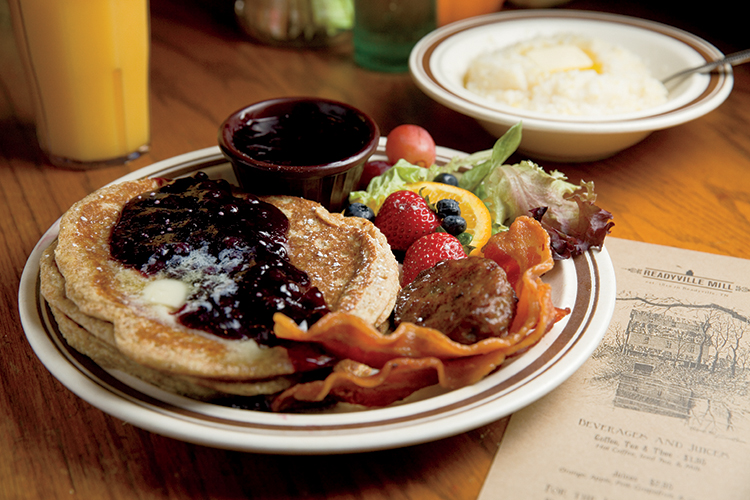
With approximately 20 employees and taxes generated by a thriving business, the Readyville Mill has a significant economic impact on the area, and represents a trend for rural Tennessee, according to Ed Harlan, a former dairy farmer now serving as assistant commissioner of market development for the Tennessee Department of Agriculture.
“We are seeing an expanded interest in rural projects through agribusiness and agritourism, and the Readyville Mill is a perfect example,” Harlan says. “People are interested in bringing their children to experience the mill, making a day of it, and hopefully they are buying products from the region.”
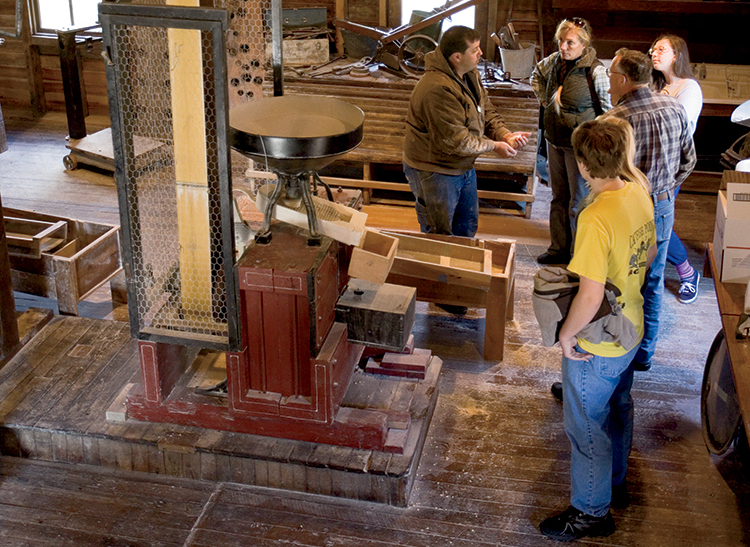
With more people becoming interested in where their food is grown and how it is produced, the local family farm is becoming more of a focal point for the general public, Harlan says, and has spawned the relatively new trend of “agritainment.” Working mills, pumpkin farms and seasonal you-pick programs scattered across the state are providing people with authentic, expanded farm experiences.
“I am really happy with this new focus on agritourism,” he says. “What it has done is to give farmers another source of income, and in some cases it’s giving the spouse and children another source of income to stay on farm. We are extremely happy about that.”
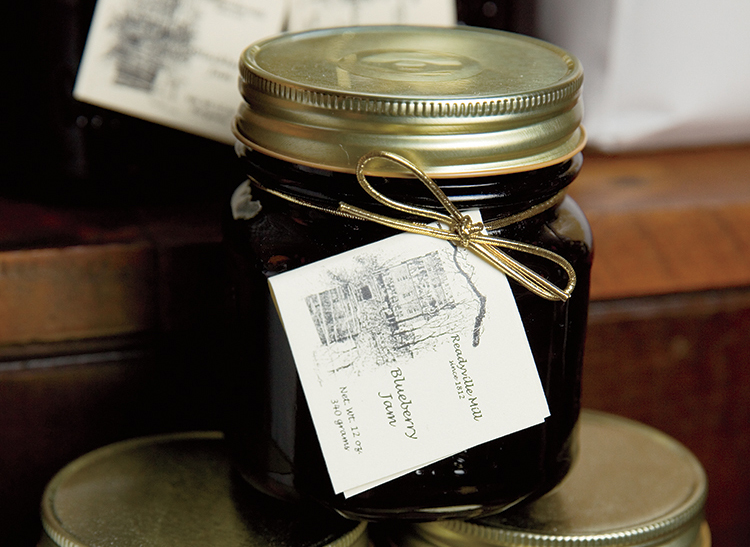
Agriculture is meeting historic preservation in other places throughout Tennessee, Harlan says, pointing out lodging and dining venues such as Evans Mill in Smithville, and wineries and distilleries throughout the rural areas of the state.
“What we are seeing is that people who are three or four generations removed from the farm are reconnecting and understanding where food actually comes from, whether it’s picking produce and visiting a dairy or going to a mill. It is our desire for people to understand more of rural Tennessee and why agriculture in the rural parts of our state is important to our whole economy and our way of life.”



